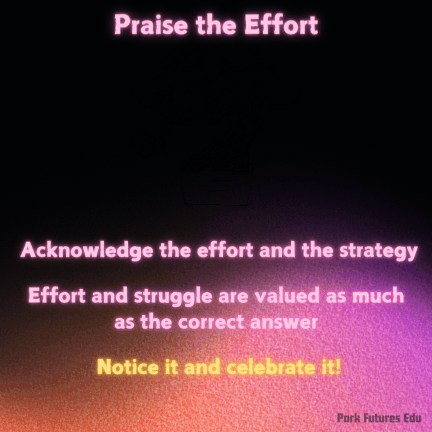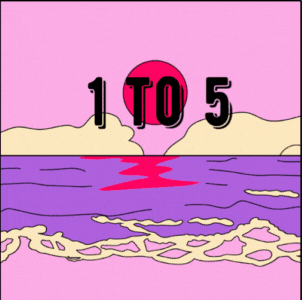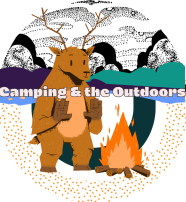Mathematics
Just like logic, economics, games, theory, rhetoric, languages and the Arts are for everyone, so is Math. Stop hiding with me, and let's tackle this beast together! First stop:
Create an understanding of math that includes: a visual, symbolic, verbal, contextual and physical component. Movement between representations should be fluid, with no one representation being dominant. Limiting the representations leads to partial or fragile understanding. Connecting of the different representation also needs to be strengthened.
How to make mistakes a part of the process:
No Erasers Instead of erasing a mistake, use one color pencil to make a first attempt and another color for the second.
Productive vs Destructive Struggle Decide when to step in and when not to - give enough time, make sure child has enough strategies to try, try to start a conversation about what they understand about the problem, what is missing from their understanding, decide when frustration is kicking off a downward spiral. Talk to students about methods of dealing with frustration.
Aids, Tricks, Mnemonics There is a danger when offering tricks, aids and mnemonics. They are cheats that undermine true understanding and the whole idea of struggle as a means towards authentic interaction with the material at hand - that is, the work is put into remembering the trick and not to understanding the problem and ways to solve it.
Early Finishers Those who have grasped the concept and show proficiencies, should be allowed to explore the topic more deeply with more activities of the same types of problems. Those who are rushing and realize the reward is more work will most likely slow down.
Time Allow for it to take as long as it takes. True proficiency and later mastery does not follow a prescribed schedule. Follow the time table of the person doing the work, not an outside adult formulated schedule.
Strategies Although there are many strategies to help solve a problem, children will gravitate towards the ones they are most comfortable with (Draw a picture, look for patterns, make a table, estimate and check). Tempting as it may be to point out other strategies, telling defeats struggle and you become the go-to talker through, instead of the struggle leading somewhere positive. Allow for preferences and talk about the strategies and their abilities to work for certain types of problems. Validate!
Praise the Effort
Acknowledge the effort and the strategy
Communicate that effort and struggle are valued as much as the correct answer.
Notice it and celebrate it!
Accountability and Participation When using groups to do projects, ask each student to use a different colored marker so it is easy to see each one's contribution. Same thing with speaking, give each student four or five tokens to be used when they speak, and at the end of the allotted time all students should have used all their tokens.
Reflection If you can get a child to reflect on a struggle, they get to practice reflection, get to understand their own thinking better and get to set consider what to do better next time. You can do this by: Independent writing and drawing - a journal dedicated to struggle and perseverance; Prompts can include - Who I learned from, pictures of struggle, choose one word to express your experience in math today and explain why you chose this particular word. Another can be 'Today I __, tomorrow I will _____.'
Reflections can include asking about the task at hand - was it too easy? I could do it with little effort. Too hard- I wasn't able to do it, I tried but I didn't understand ____. Or just right - it was hard, but I was able to think through it and I am pretty sure I got it right.
Singapore Math
International benchmarks confirm effectiveness:
2022 PISA math score: 575 (OECD average: 472)
TIMSS grade 8 average: 598 vs Australia's 556
How do they do it??
Concrete - Pictorial - Abstract
-
Manipulatives - first approach (blocks, fraction bars) for physical understanding
-
Visual modeling using bar diagrams to represent relationships
-
Abstract symbolic manipulation only after mastering concepts
-
Focus on multi-step word problems; NOT rote computation
-
Spiral curriculum, revisiting concepts with increasing difficulty; NOT more concepts
-
Growth mindset cultivation through celebrating productive struggle; NOT celebrating just correct outcomes (72% fewer topics per grade than U.S. curricula for deeper mastery)
Finland Math
International benchmarks confirm effectiveness:
2022 PISA math score: 517 (OECD average: 472)
How do they do it?
-
Teacher autonomy and higher degree per educator
-
Looping system of 3 years with the same teacher
-
Metacognitive skill development -> Learning to think mathematically
-
Error normalization as learning opportunity
-
32% fewer math hours
-
No homework
-
Individualized pacing
Ages 1-5
Young children between the ages of 1 and 5 are rapidly developing their mathematical abilities. They are naturally curious about numbers and how they relate to the world around them. During this stage, children begin to understand basic counting concepts, recognize patterns and sequences, and develop spatial reasoning skills. They are also able to solve simple addition and subtraction problems using concrete objects. As they progress through these early years, children's mathematical understanding becomes increasingly sophisticated, laying the foundation for future learning and success in this important subject.
Ages 6-10
Children between the ages of 6 and 10 are at a critical stage of mathematical development. As they transition from concrete to abstract thinking, they begin to grasp more complex concepts such as multiplication, division, and fractions. They also start to develop a deeper understanding of geometry and measurement. By providing engaging and age-appropriate activities, we can help children build a strong foundation in mathematics and cultivate a lifelong love of learning.
Ages 11- 15
Adolescence is a time of rapid cognitive growth, and mathematics plays a pivotal role in shaping young minds. As teenagers delve deeper into algebra, geometry, and trigonometry, they develop critical thinking skills, problem-solving abilities, and logical reasoning. By exploring the beauty and practicality of mathematics, we can inspire the next generation of mathematicians, scientists, and engineers.
 Looking to team up? Love numbers, math and the mathematical? Hate math? Struggling? Know kids? Know how to code? Have other skills? Consider creating a program together to target one learning difficulty in math together! It can be a game, it can be a way of explaining things in a different way, or a hands on experience! Contact me @ admin@parkfuturesedu.com
Looking to team up? Love numbers, math and the mathematical? Hate math? Struggling? Know kids? Know how to code? Have other skills? Consider creating a program together to target one learning difficulty in math together! It can be a game, it can be a way of explaining things in a different way, or a hands on experience! Contact me @ admin@parkfuturesedu.com


















